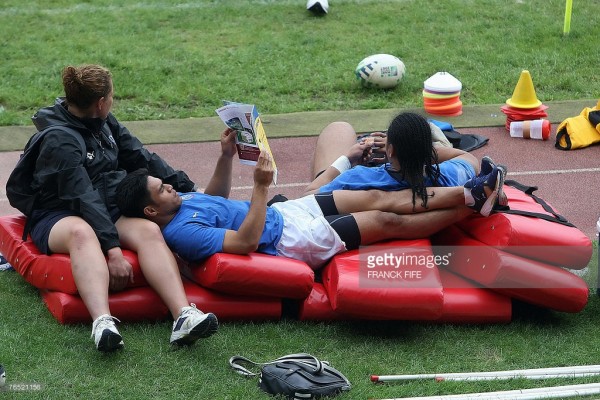Due to the intense demands of training and playing during the in-season players can become chronically fatigued. This fatigue may be evident in that the player does not have the same enthusiasm for training or for the game as he previously displayed. It is also well established that players can become over trained if training is unvaried. To help avoid the occurrence of overtraining it is important to build in regular recovery periods – or unloading weeks into the program.
It is recommended that after every 5 weeks of training and playing that the training program is unloaded such that the player does not complete formal fitness training. In other words he takes a complete break from resistance training, speed work, interval training, the gym and if possible has a reduced rugby practice time.
While some rugby practice may take place, especially if there is a game planned for the weekend, some variation in the format of the rugby practice should be considered. For example:
- A change in training venue is useful and provides variety of setting.
- A reduced practice duration from 60 minutes to 30 minutes with a game such as soccer as a warm up can be helpful in stimulating a renewed energy in players.
- Alternative fitness maintenance training can be completed. Instead of interval running the player could complete an interval session while swimming. Instead of resistance training in the gym the player could take part in athletic events – jumps and throws.
The coach must constantly be aware of the mental as well as the physical well being of his players. Guided by the principles of training the coach can creatively prepare a varied and stimulating program of training and game practice for his players.

